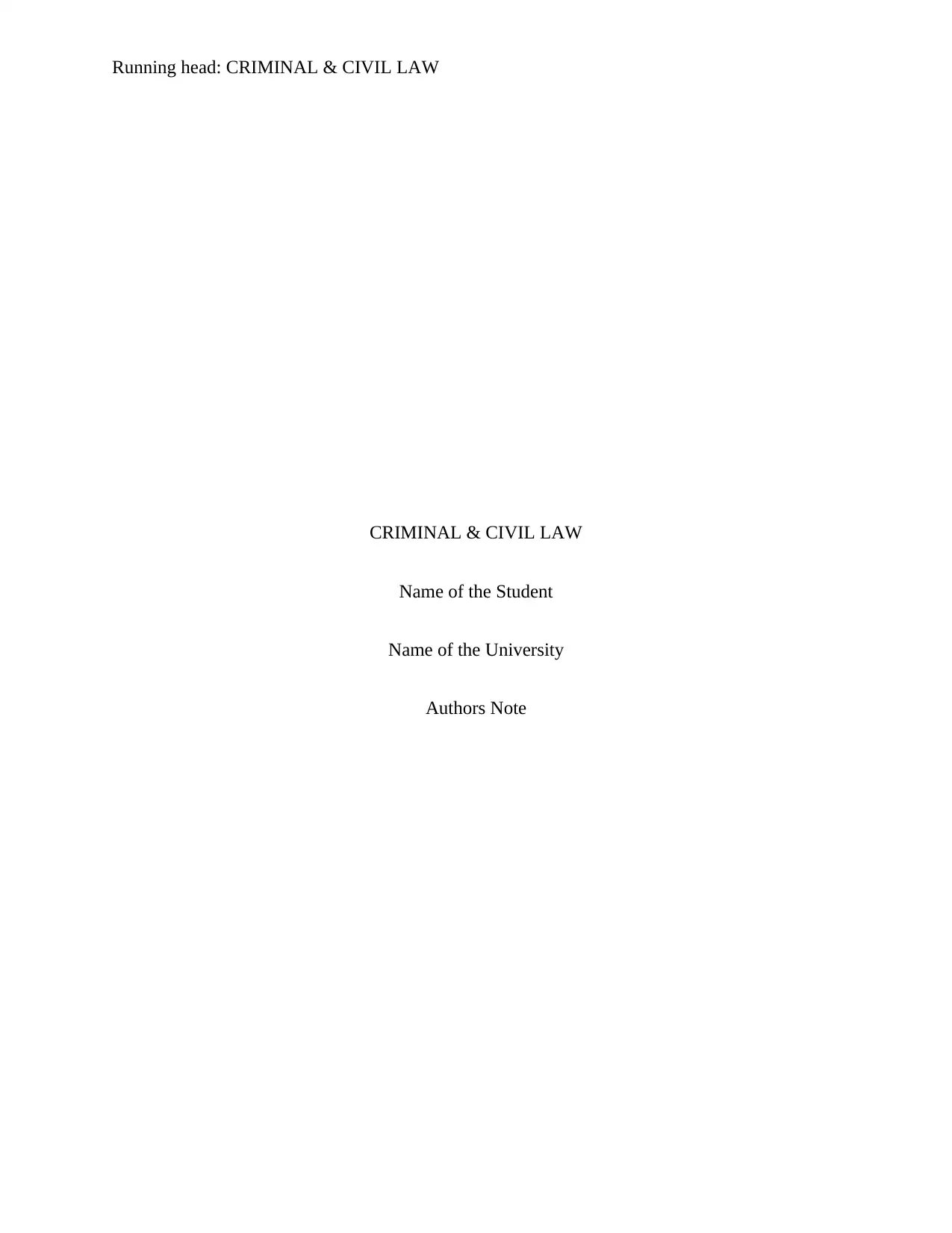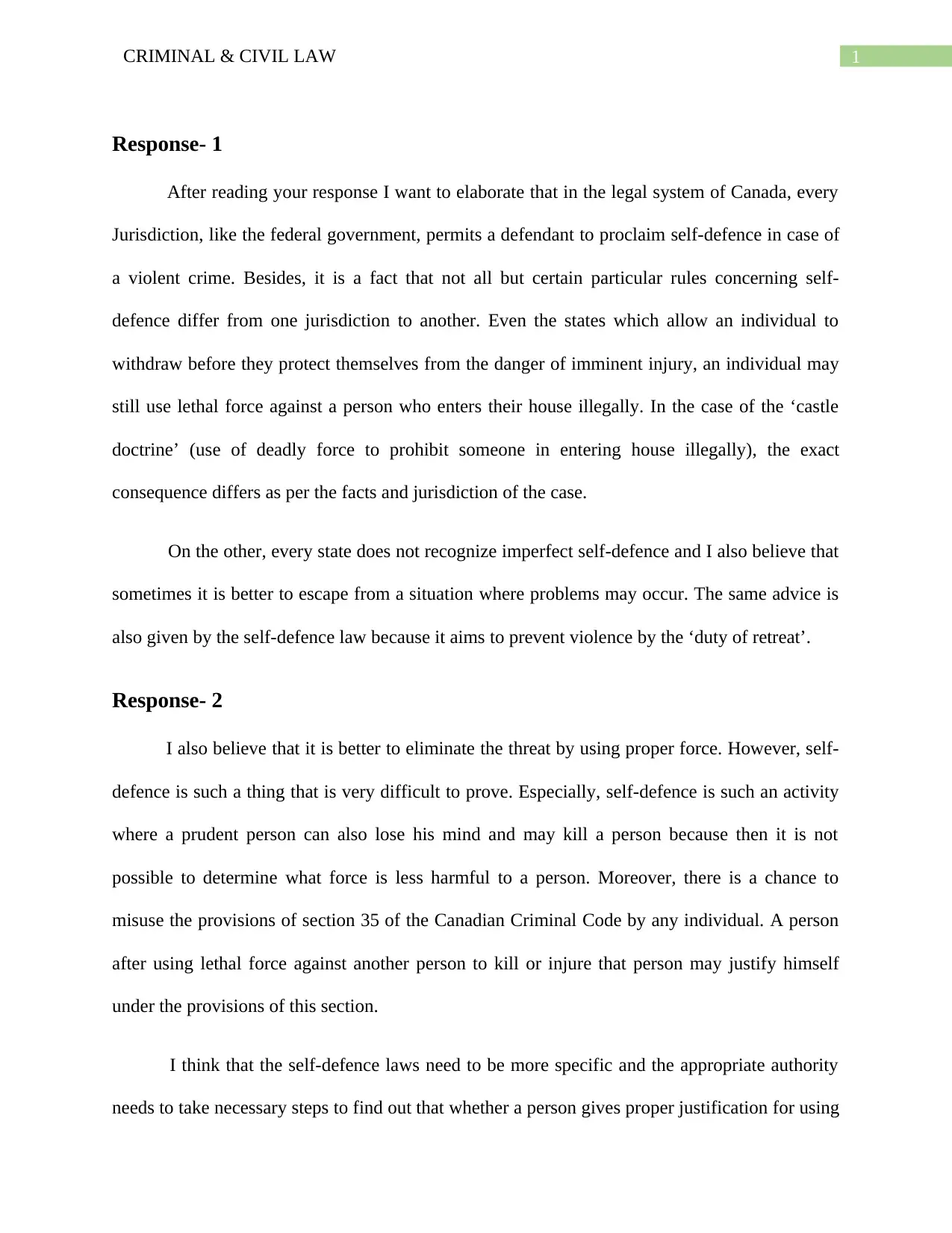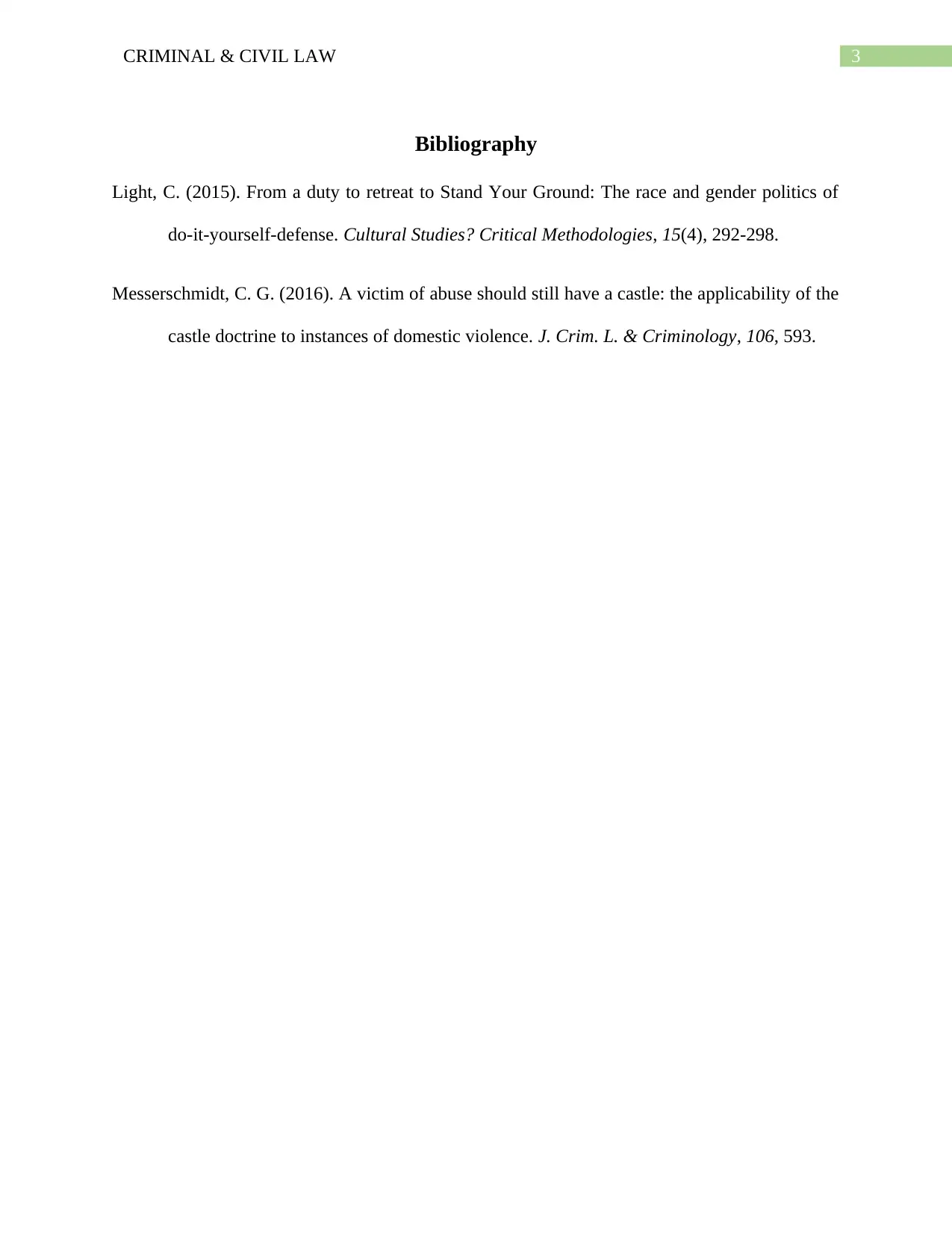Criminal and Civil Law: Analysis of Self-Defense and Duty to Retreat
VerifiedAdded on 2022/08/20
|4
|476
|10
Report
AI Summary
This report examines the complexities of self-defense within the framework of criminal and civil law. It delves into the legal implications of self-defense, referencing the Canadian legal system and specific provisions like the 'castle doctrine' and the 'duty to retreat'. The report highlights the challenges in applying self-defense, particularly the difficulty in determining the appropriate level of force and the potential for misuse of legal provisions. It also emphasizes the importance of specific legal guidelines and the need for authorities to carefully assess the justifications provided for the use of lethal force. The report concludes by acknowledging the complexities of self-defense and the importance of understanding the legal nuances to avoid potential misuse of the law.
1 out of 4








![[object Object]](/_next/static/media/star-bottom.7253800d.svg)